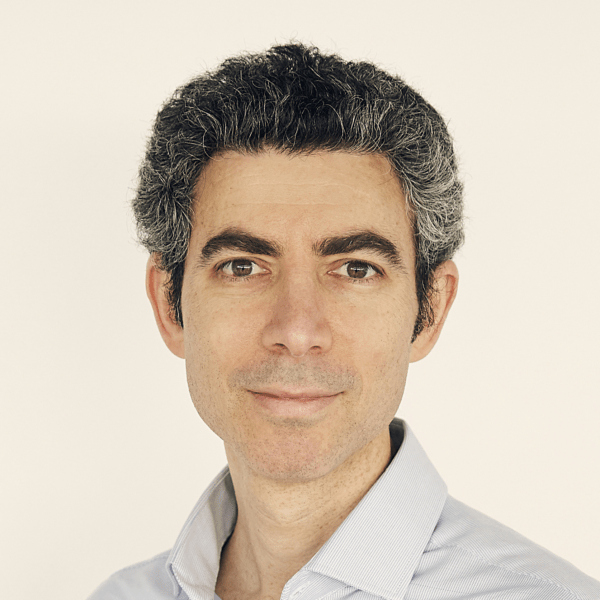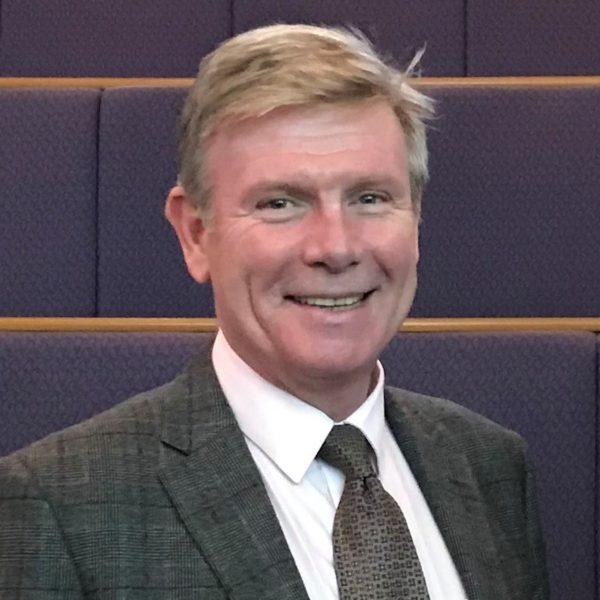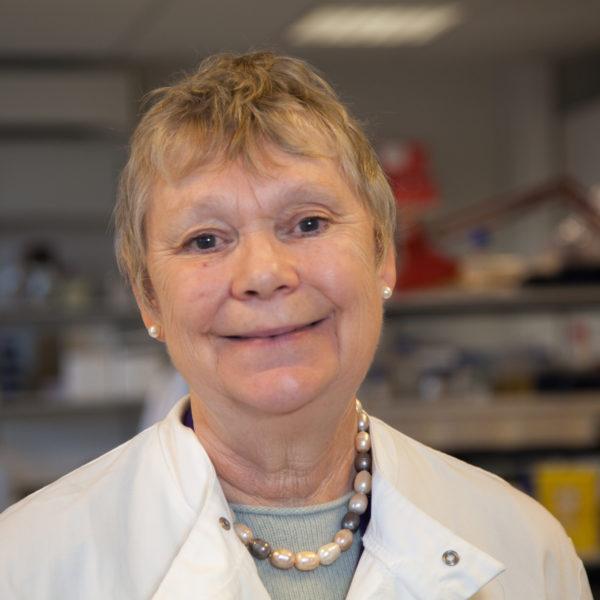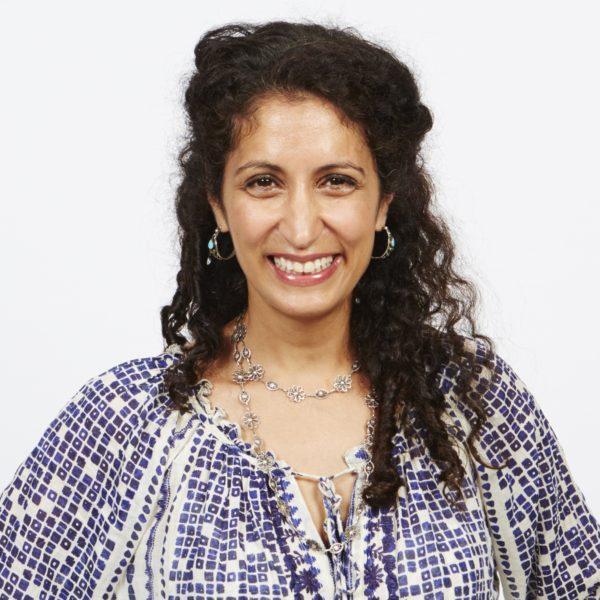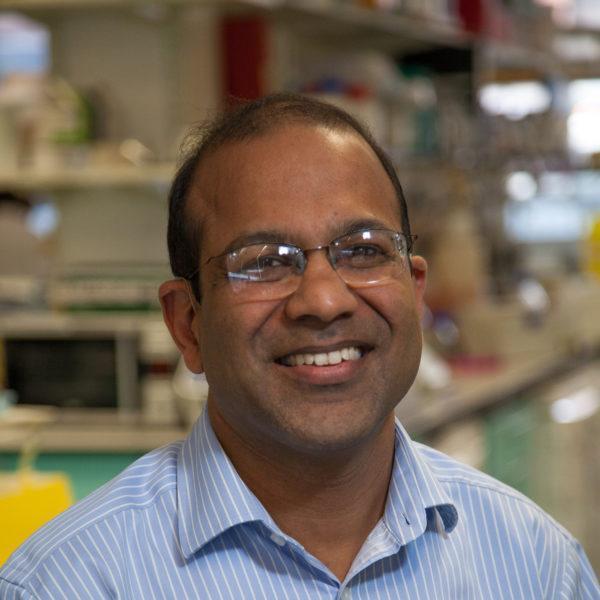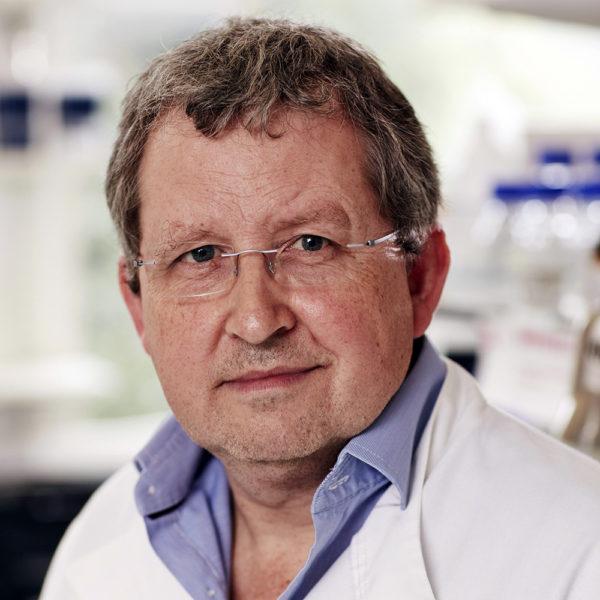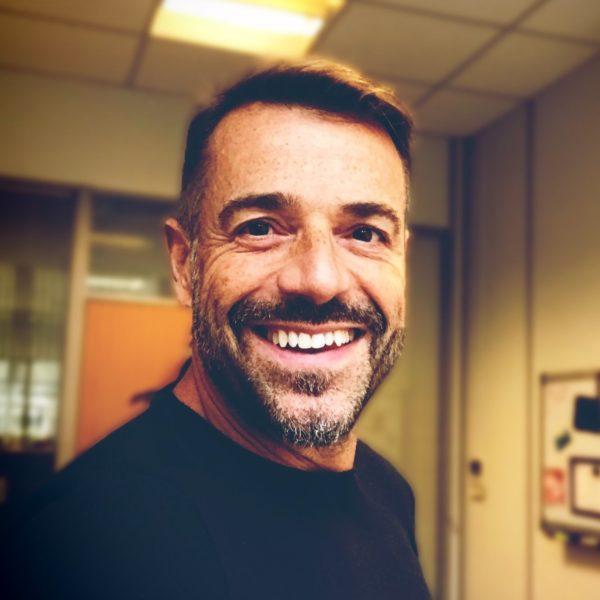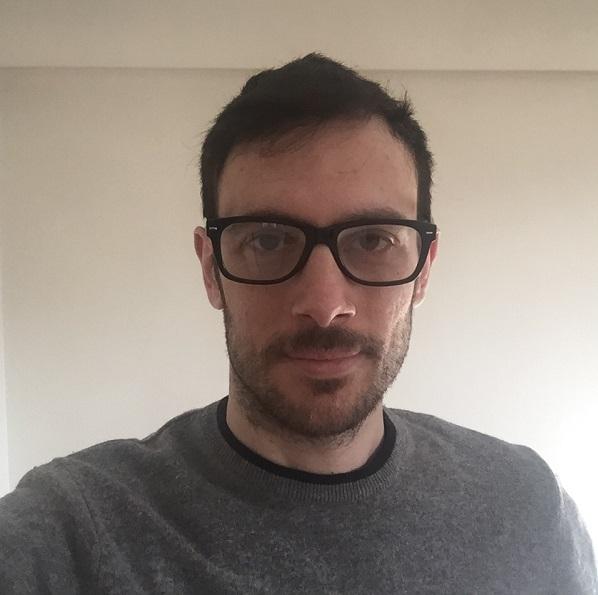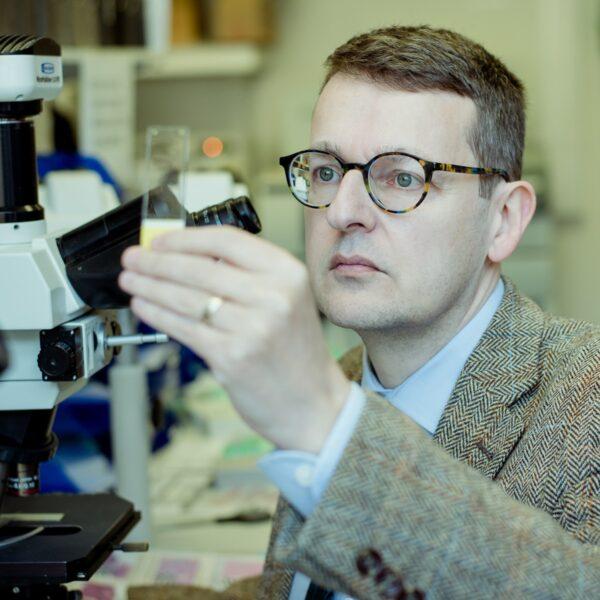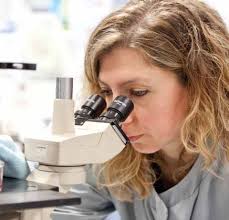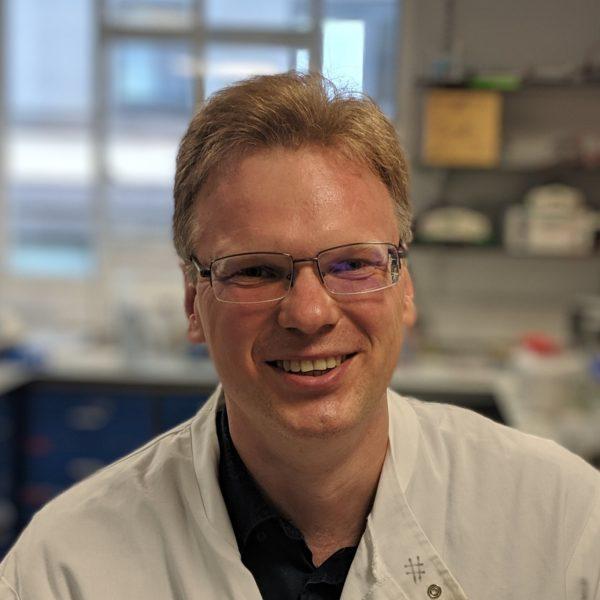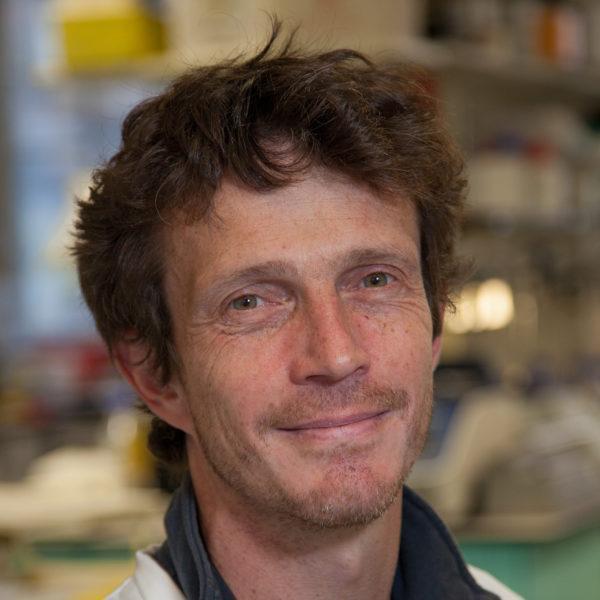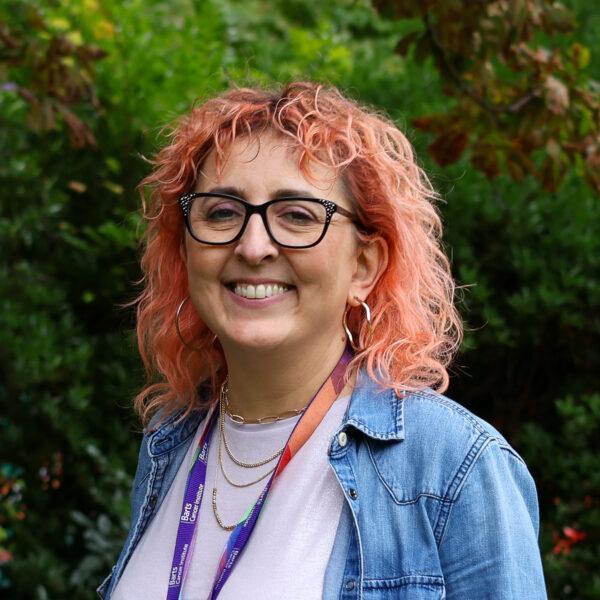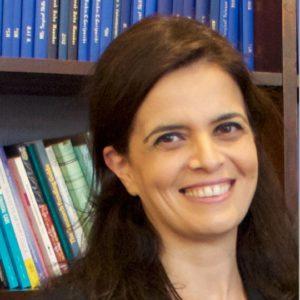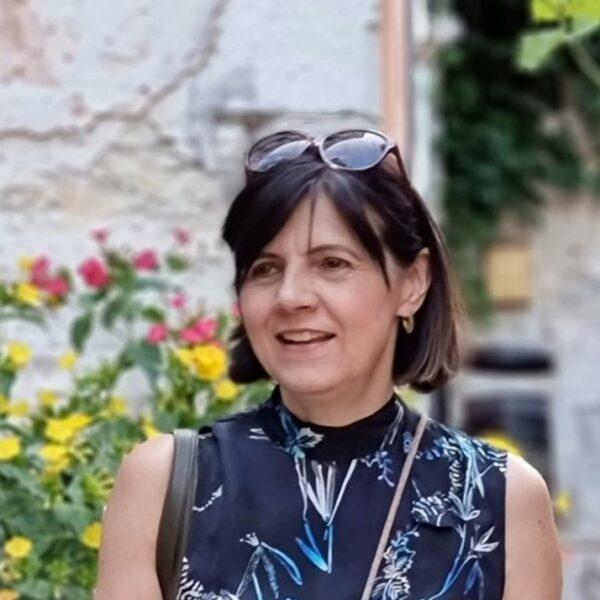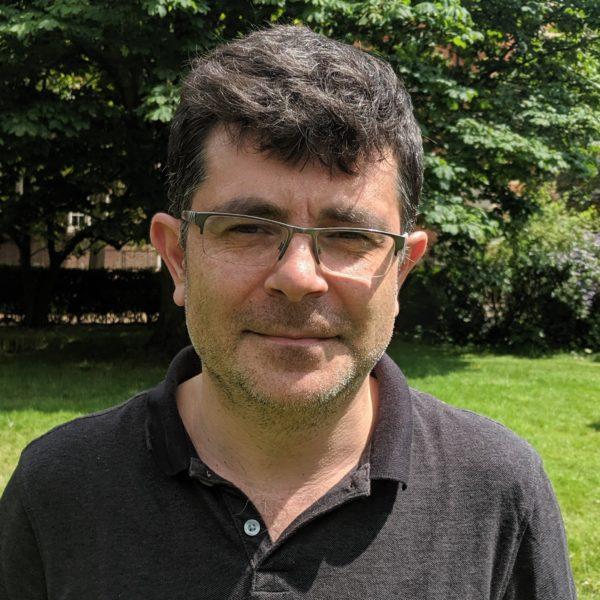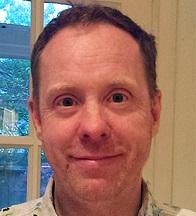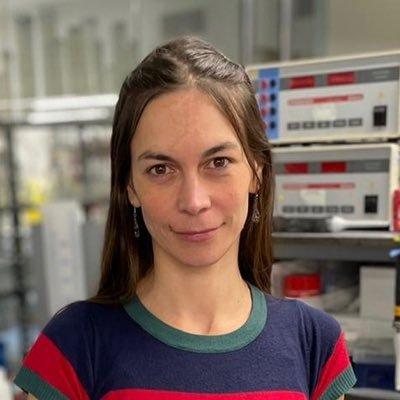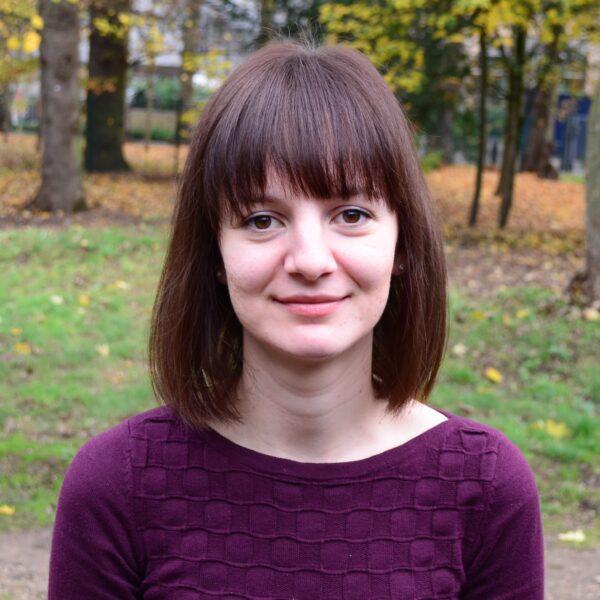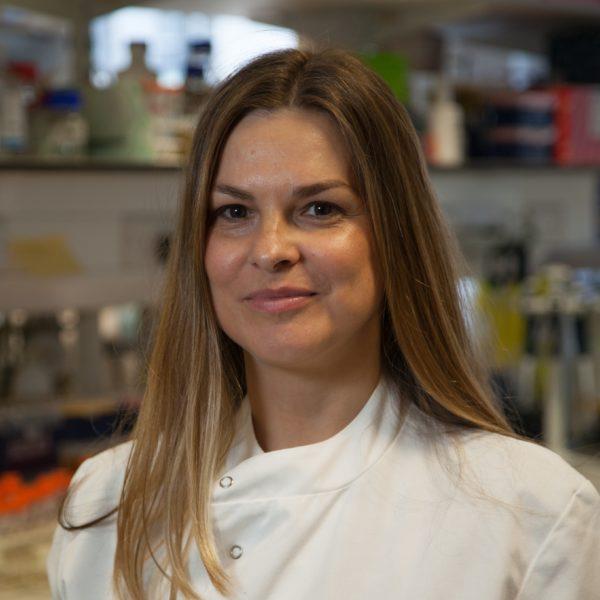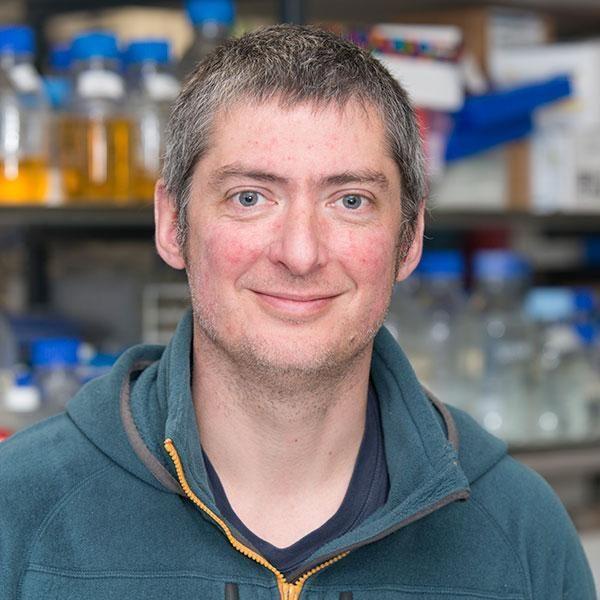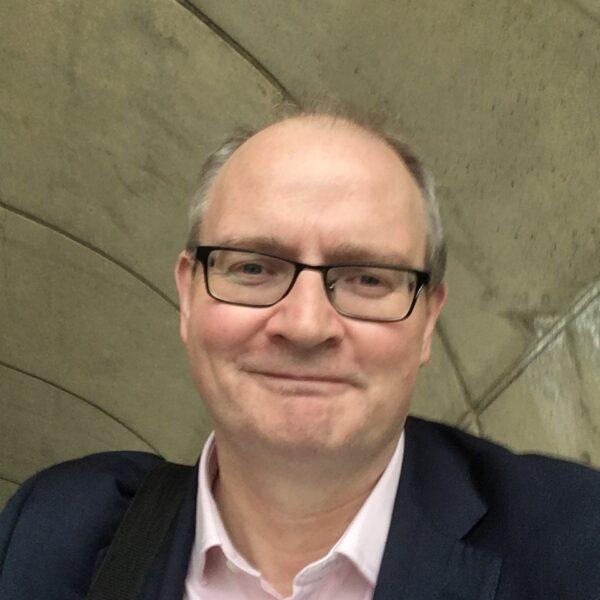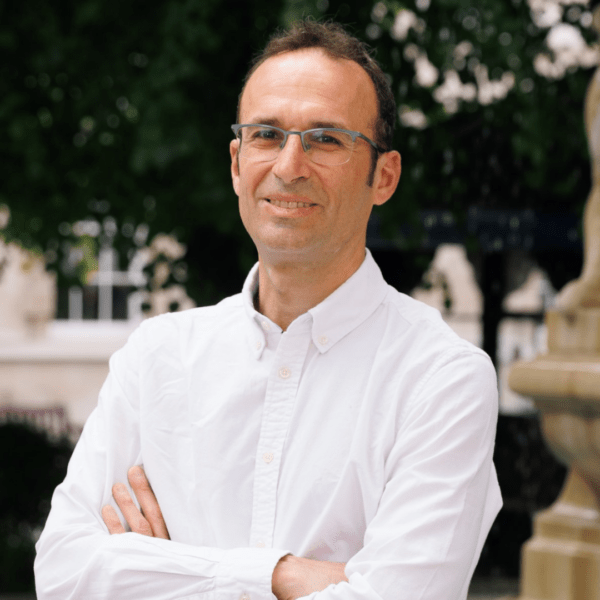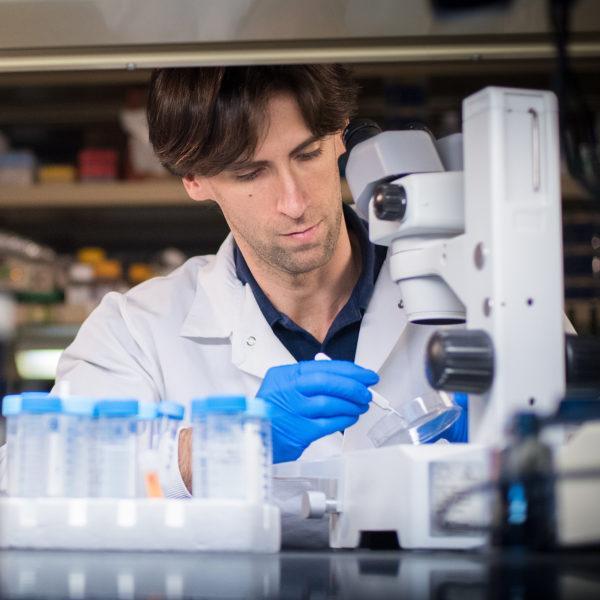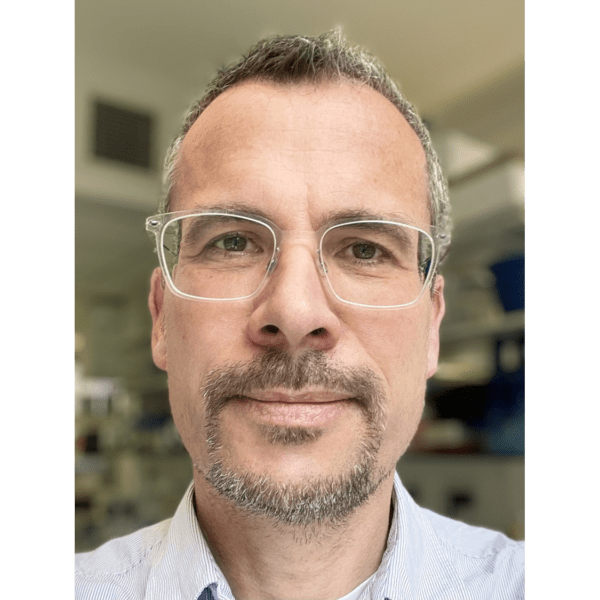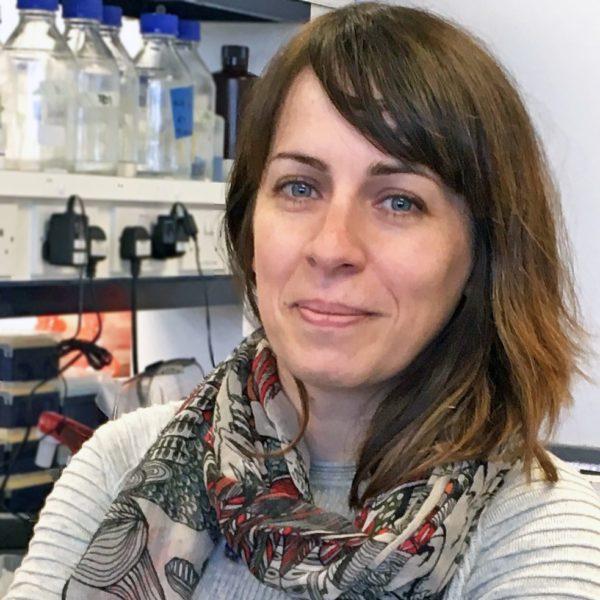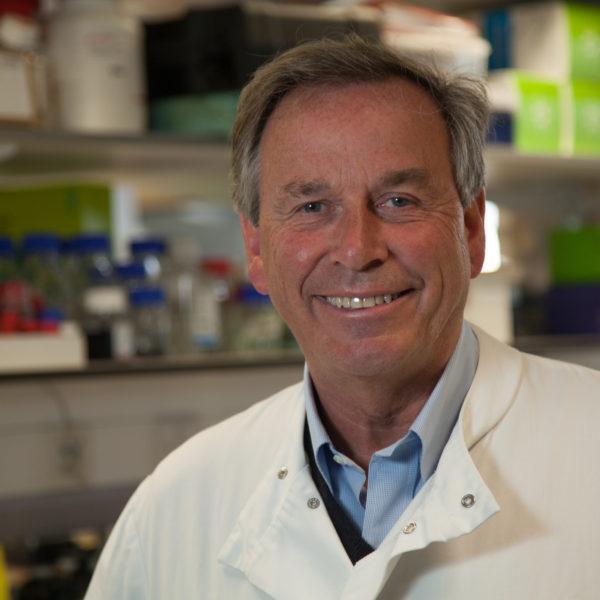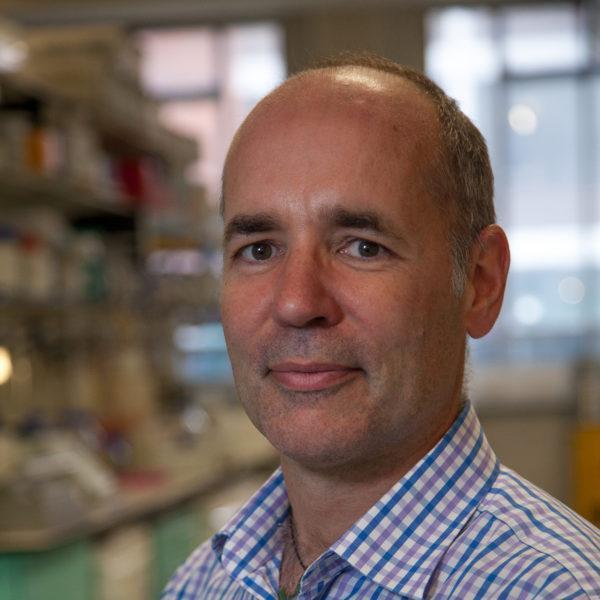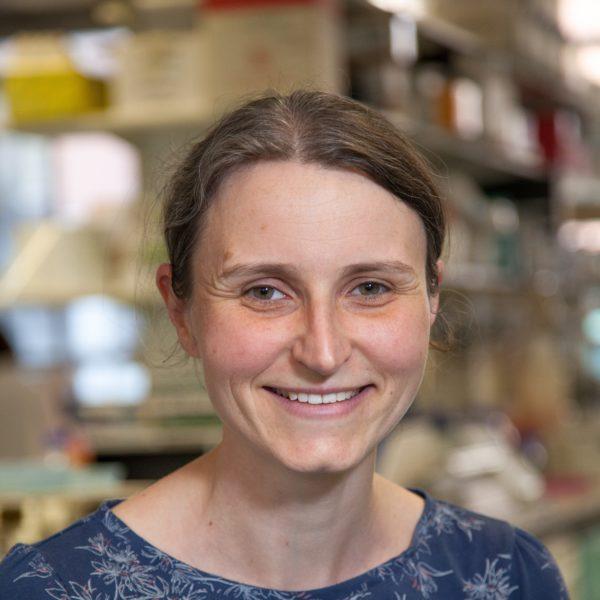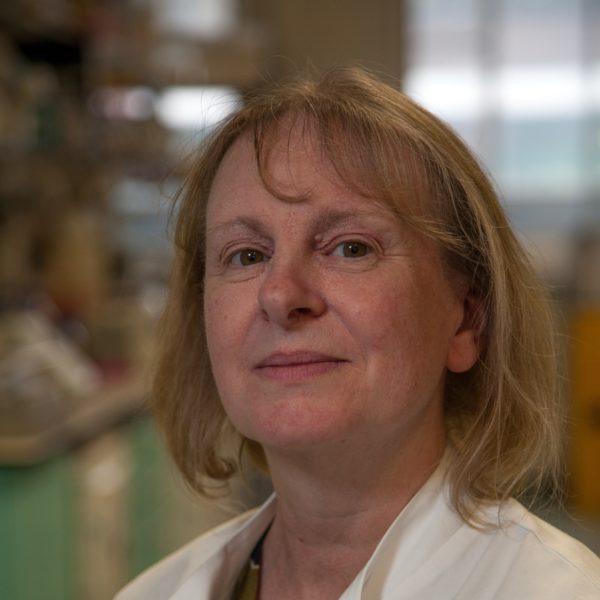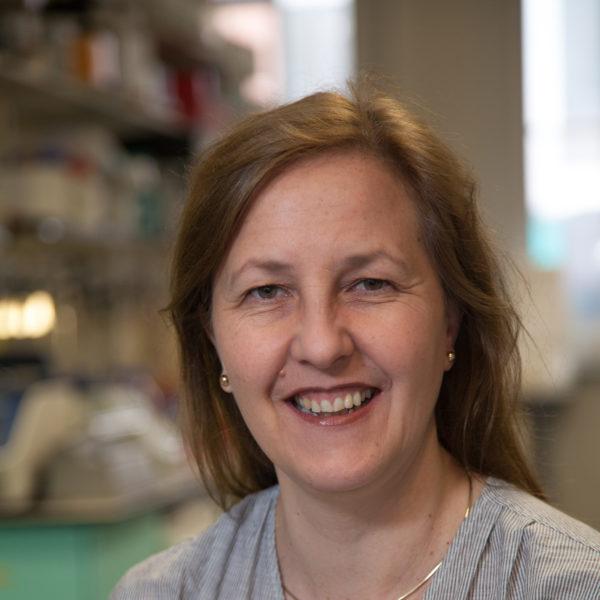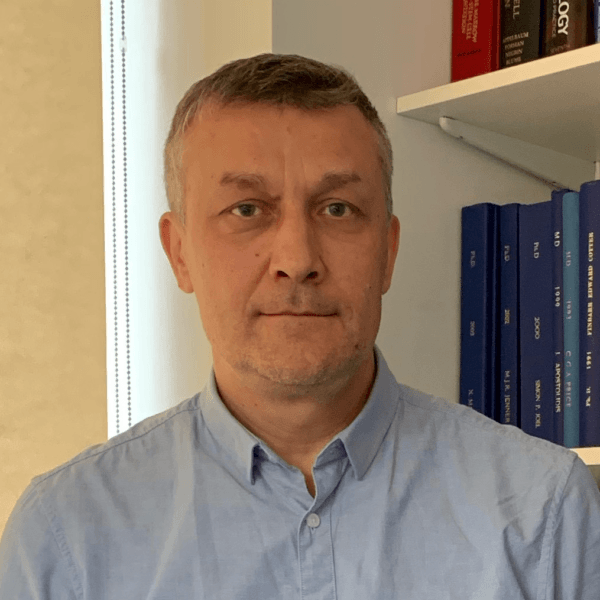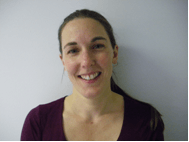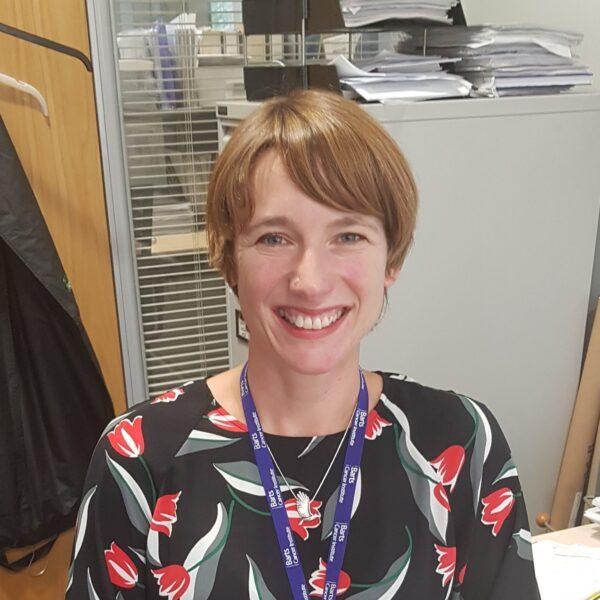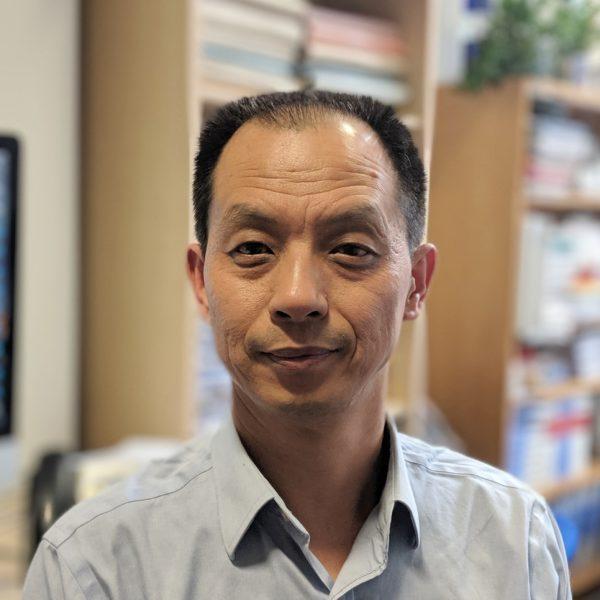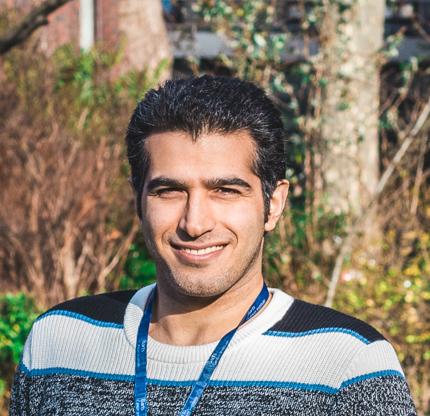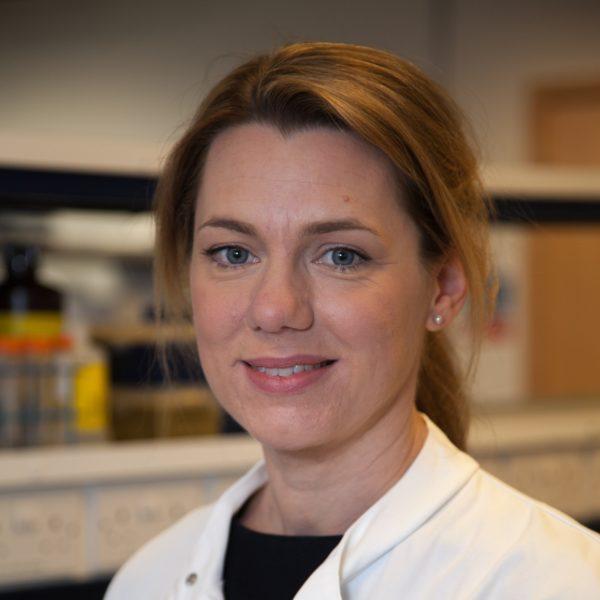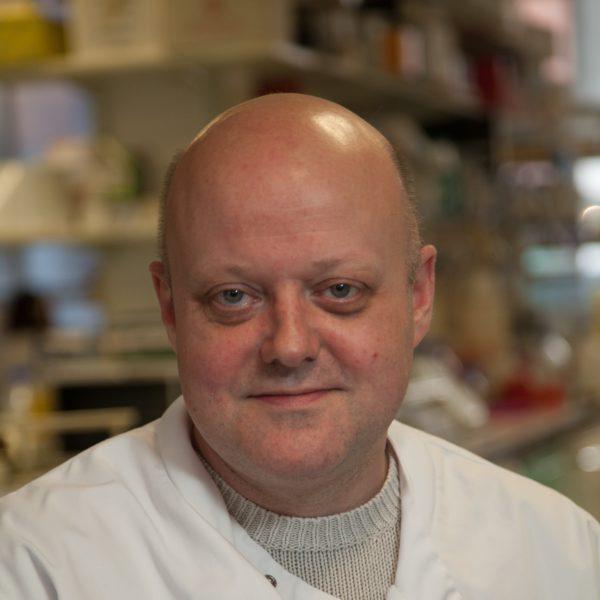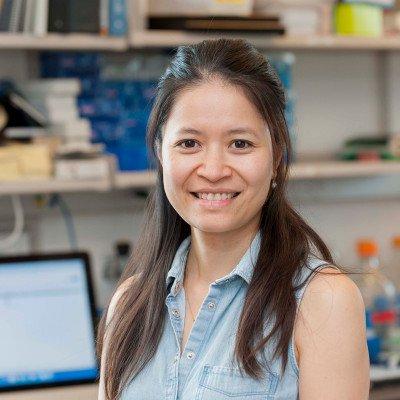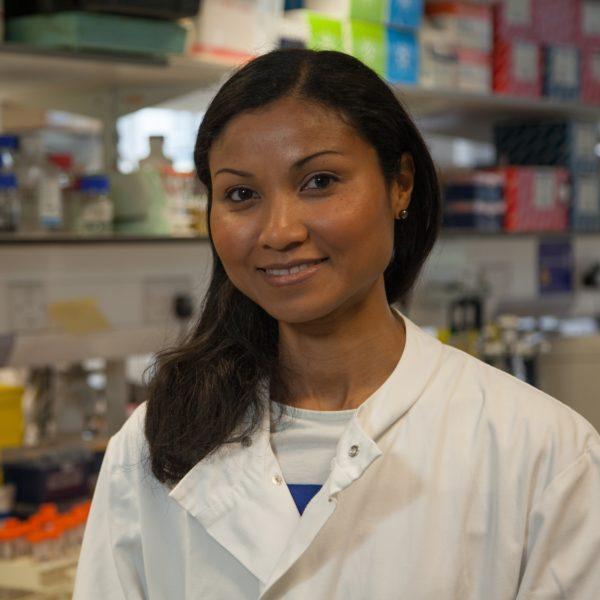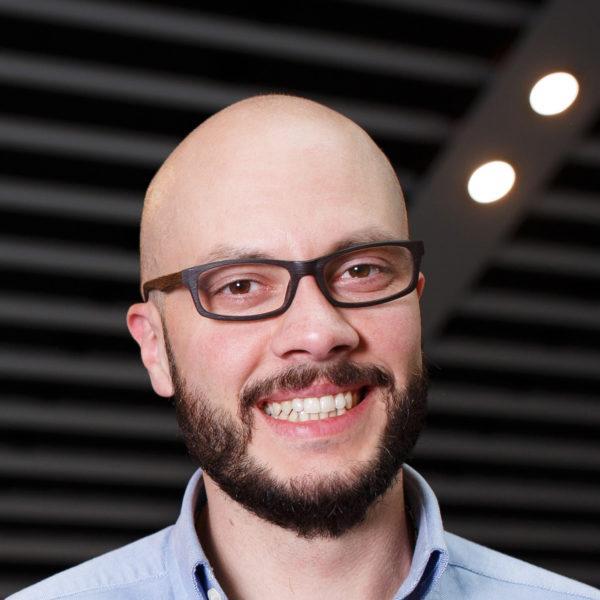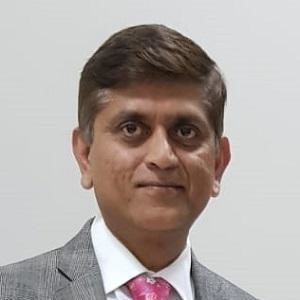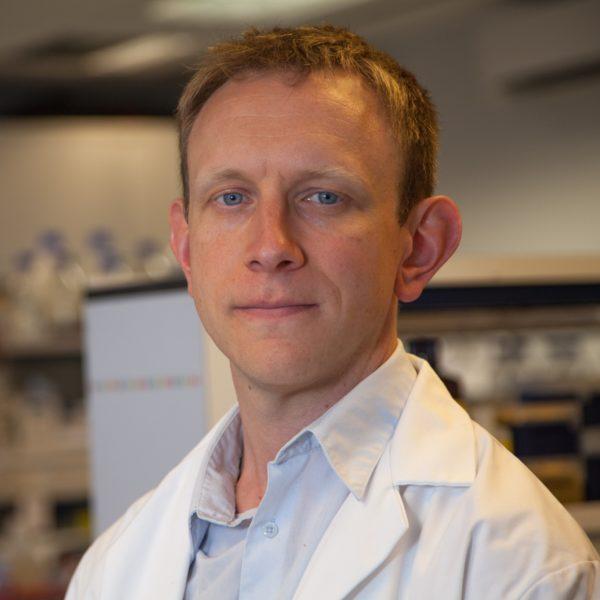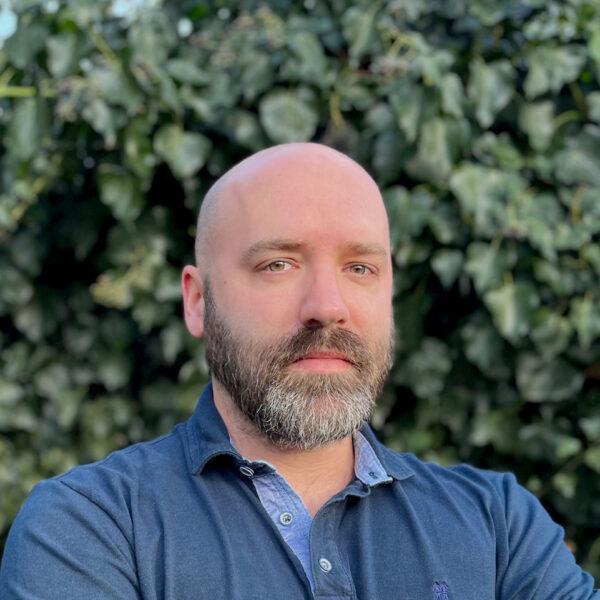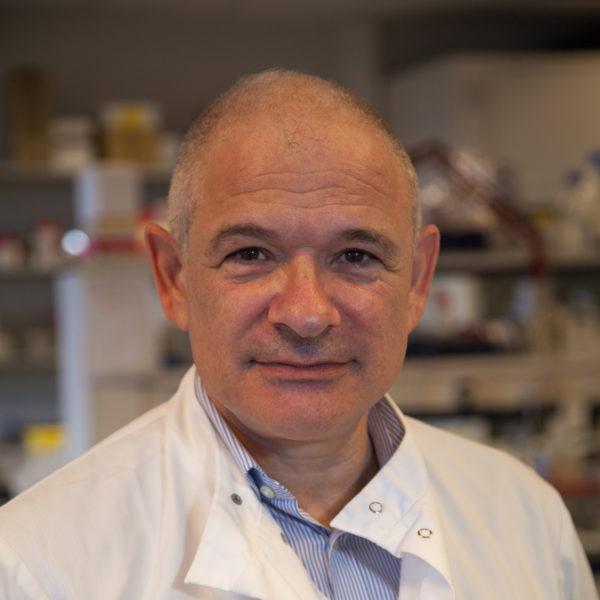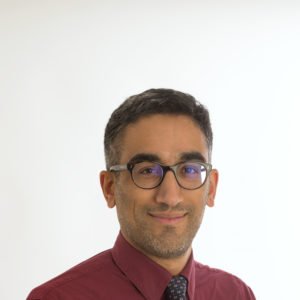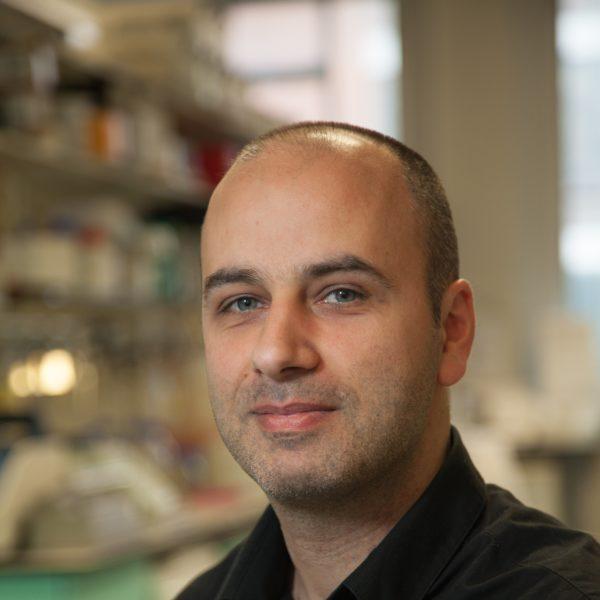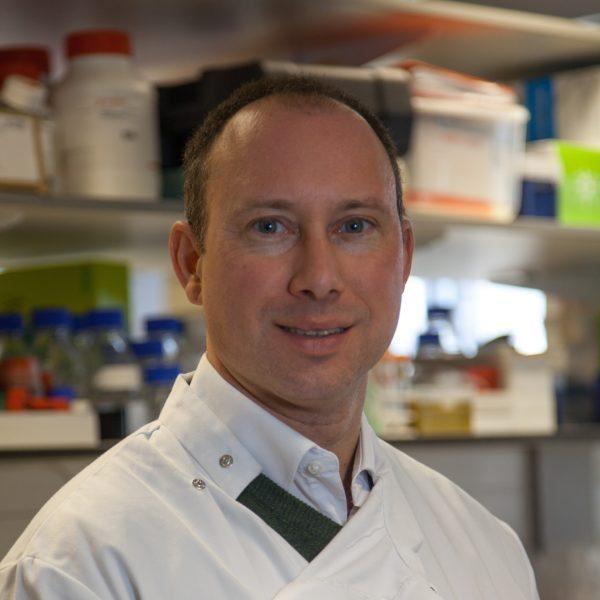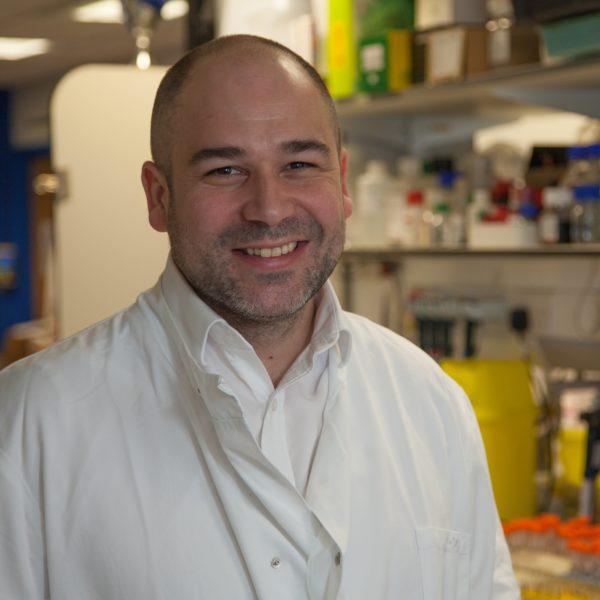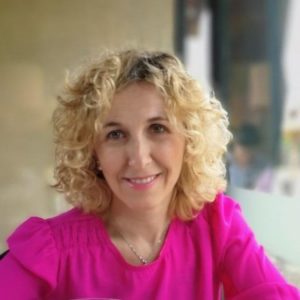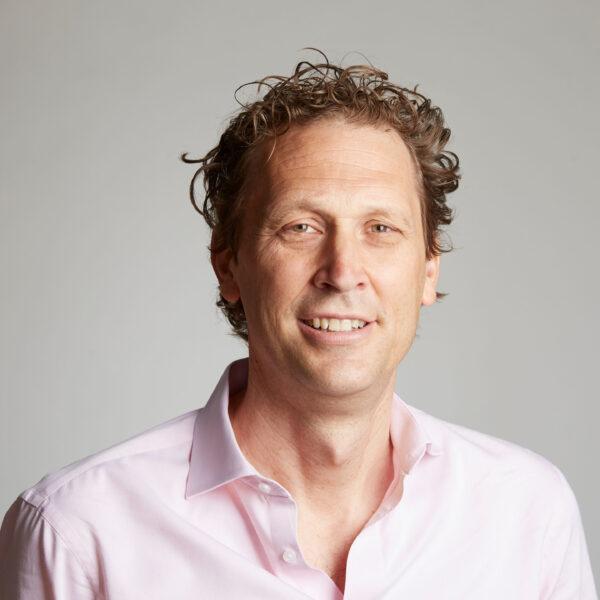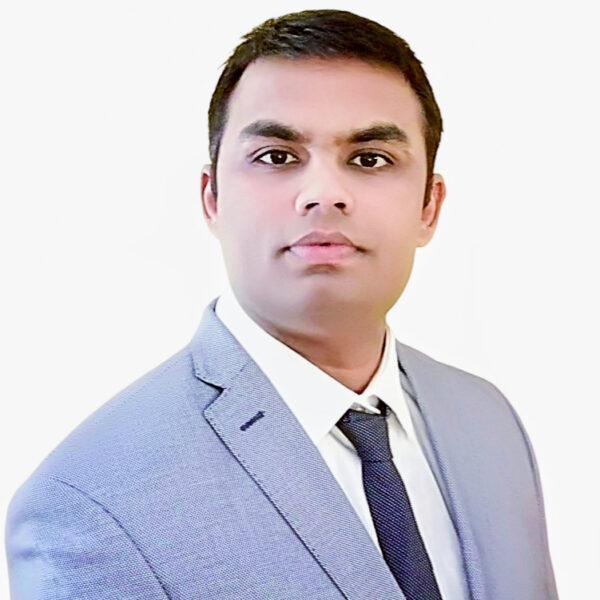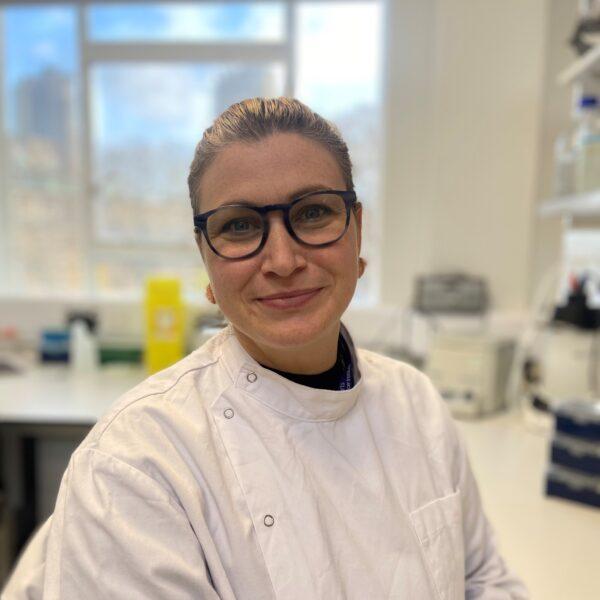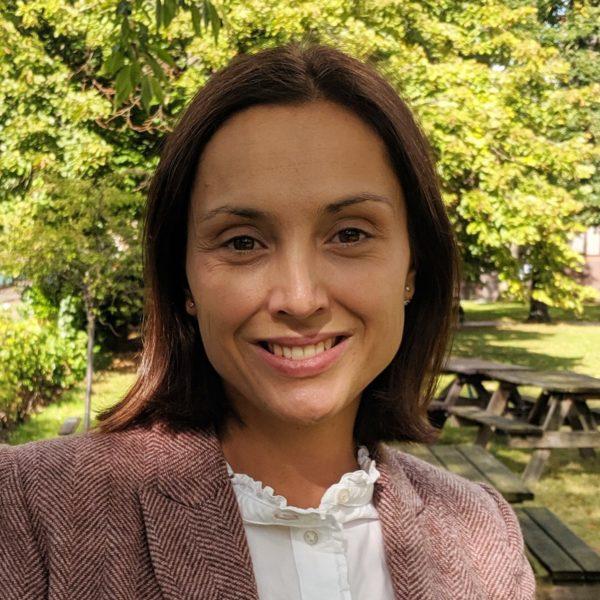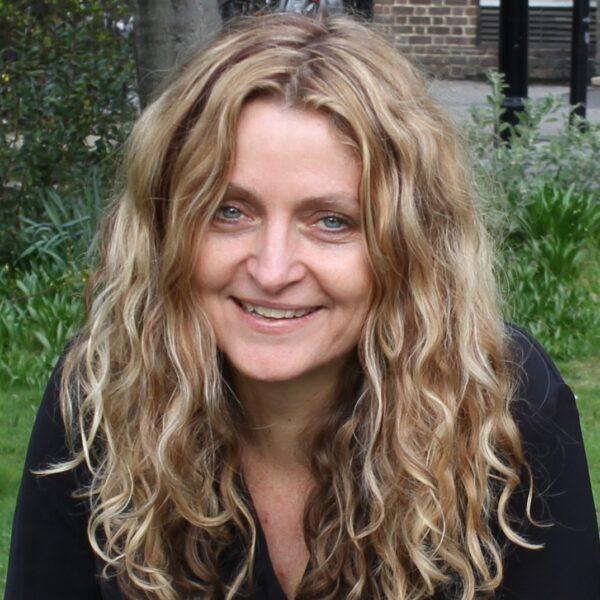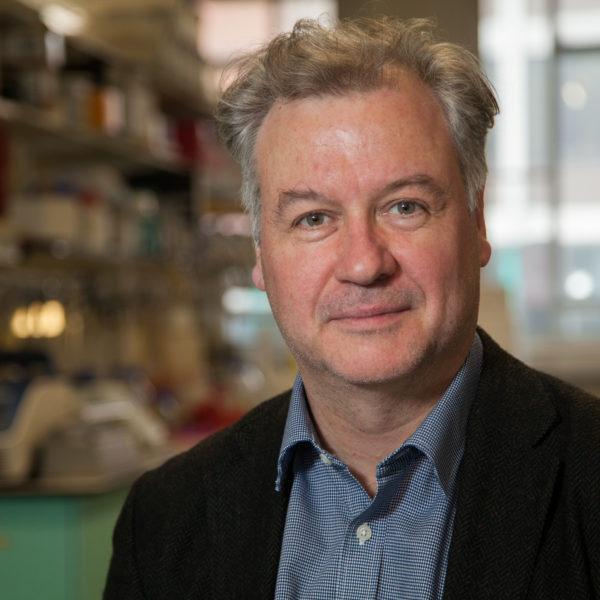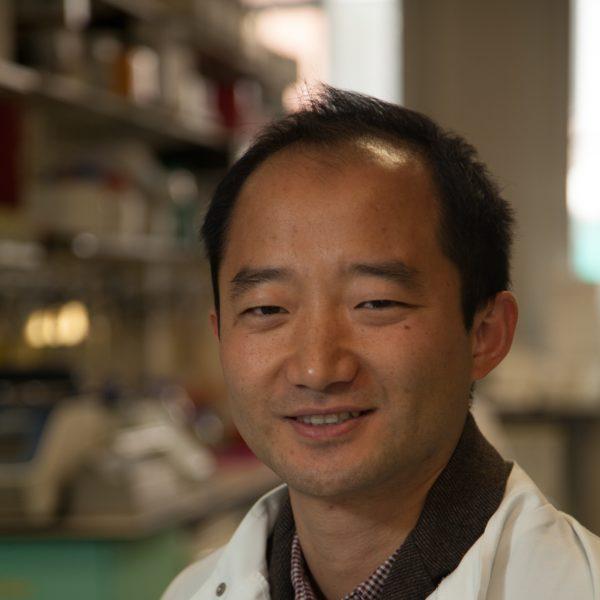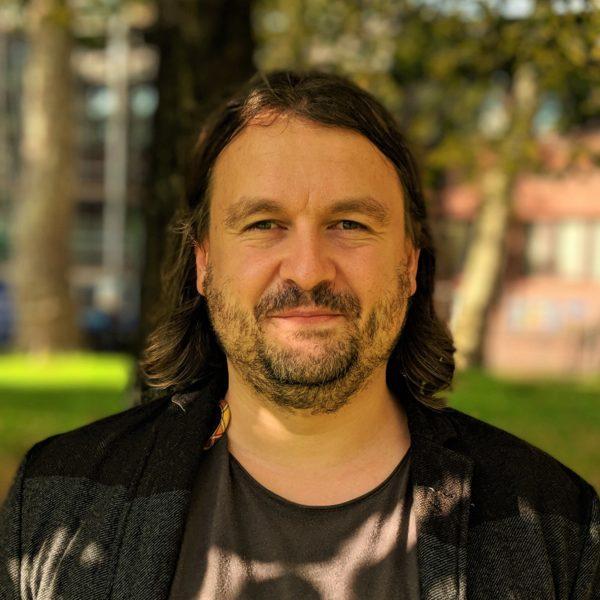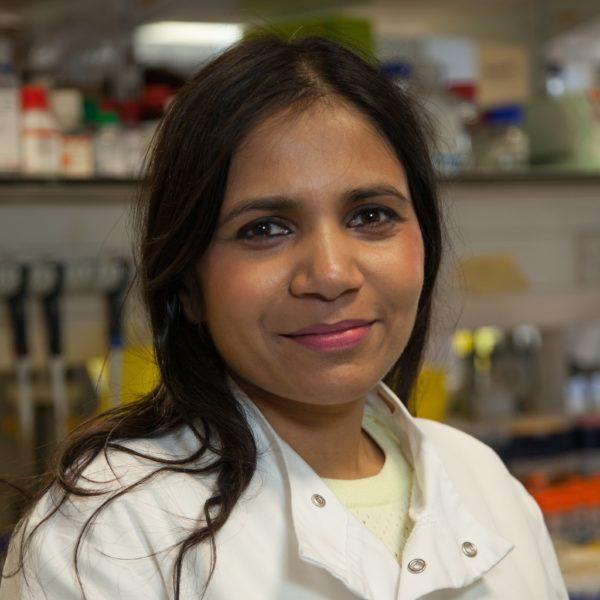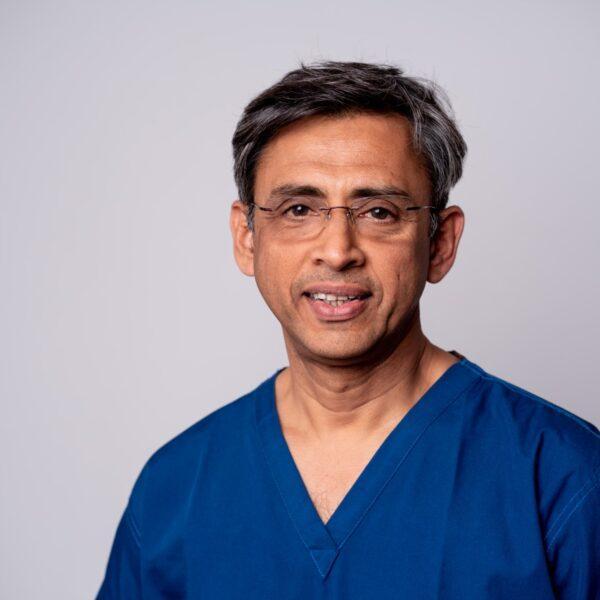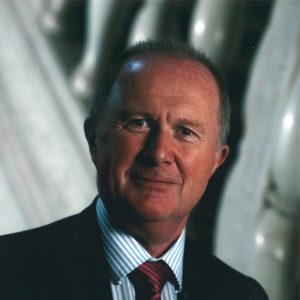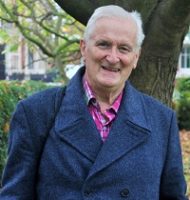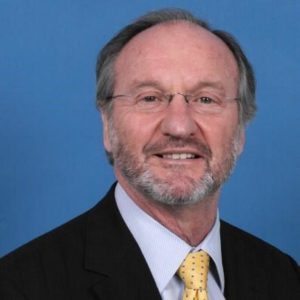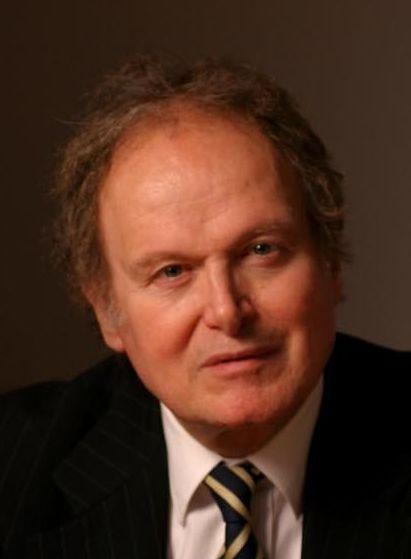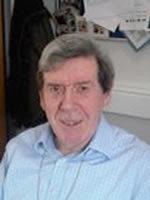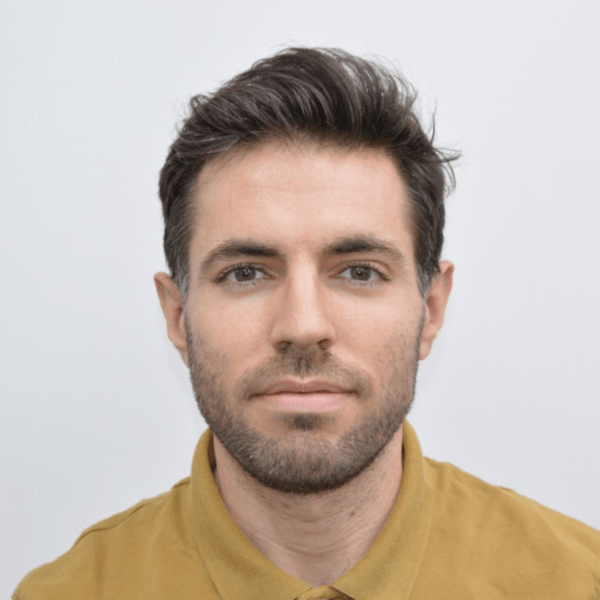Staff Directory
Professor Nitzan Rosenfeld
Director, Barts Cancer Institute; Professor of Applied Cancer Research
The Rosenfeld group develops molecular diagnostic tools for cancer detection, characterisation and monitoring, to help make more informed treatment decisions. We focus on liquid biopsies, in which we analyse blood samples to detect and characterise cell-free circulating tumour DNA (ctDNA).
Professor Nick Lemoine
Medical Director, NIHR Clinical Research Network; Professor of Molecular Oncology Director of the Barts Cancer Institute 2003-2024
My groups’ primary research interests are in the genomics and molecular pathology of pancreatic cancer and the development of oncolytic virotherapy.
Professor Fran Balkwill
Professor of Cancer Biology
My research is focused on the links between cancer and inflammation, being especially interested in translating knowledge of cancer biology into new biological treatments for cancer and in the role that inflammatory cytokines play in cancer promotion. We study the tumour microenvironment of ovarian cancer using a platform of human multi-cellular tissue culture models and mouse models to research biological therapies that may prevent relapse and increase patient survival.
Professor Kairbaan Hodivala-Dilke
Deputy Institute Director, Professor of the Tumour Microenvironment
Our research aims to improve the efficacy of standard of care immunotherapy, chemotherapy and radiotherapy in human solid cancers by understanding the molecular mechanisms underlying tumour stromal contributions to tumour growth and therapy efficacy.
Professor Hemant Kocher
Professor of Liver and Pancreas Surgery
My clinical research interests include tissue banking, clinical trials, innovative surgical techniques, epidemiology, meta-analysis and patient care pathways. My translational research interests include pancreatic cancer stroma and tumour-stroma cross-talk including cell signalling, adhesion, metastasis and invasion.
Professor John F. Marshall
Professor of Tumour Biology
I study the biology of tumour invasion with a particular focus on the roles of the adhesion molecules expressed on the cell surface that mediate this process. Our group concentrates on the study of integrins that are the principal family of adhesion molecules that mediate the interaction between cells and the extracellular matrix.
Professor Tyson V. Sharp
Professor of Cellular and Molecular Biology
My group’s work focuses on the role of the tumour suppressor protein LIMD1 and its family members Ajuba and WTIP and how their deregulation in normal tissue contributes to the development of lung, renal and breast cancer.
Dr Roberto Bellelli
Senior Lecturer
My lab aims to understand the basic mechanisms controlling DNA replication in mammalian cells and how disruption of this process leads to genomic instability and cancer.
Professor Daniel M Berney
Honorary Professor of Genito-urinary Pathology; Consultant Pathologist
My focus is on the pathology and natural history of prostate, testicular and penile cancer working to translate basic research into practical treatments for patients with novel tests and bespoke predictive treatments.
Dr Katiuscia Bianchi
Reader in Cell Biology
The focus of our lab is to study how inflammation, via modulating cellular metabolism, affects different aspects of cancer biology. In particular, we are interested in understating how obesity-associated inflammation rewires cellular metabolism, increasing the risk of breast cancer in obese women.
Professor Andrejs Braun
Professor of Genome Regulation Director of Education
My group is interested in epigenetic regulation of somatic mutagenesis in normal and malignant B cells. We aim to understand how alterations in the nuclear envelope influence B cell chromatin conformation, and what the epigenetic consequences of these alterations are.
Dr Angus James Cameron
Reader in Cell Signalling and Tumour Biology; Director of Graduate Studies (BCI)
My research focuses on kinases regulating cancer cell growth and motility to understand how and when to target them with drugs. My group is currently examining the role of the PKN kinases in malignant progression.
Professor Francesca Ciccarelli
Professor of Cancer Genomics, Barts Cancer Institute Principal Group Leader, Cancer Systems Biology, The Francis Crick Institute
Our group investigates cancer evolution, with a focus on understanding how genetic changes influence disease progression, response to therapy and development of resistance. We particularly concentrate on gastrointestinal cancers such as colorectal, stomach and oesophageal cancer.
Professor Claude Chelala
Professor of Bioinformatics
My research interests lie in the area of translational bioinformatics. Current research projects are focused in high-throughput data analysis, integration with clinical data, databases and software development, particularly for pancreatic cancer and breast cancer.
Professor Tatjana Crnogorac-Jurcevic
Professor of Molecular Pathology and Biomarkers
My research focuses on molecular pathology of pancreatic cancer, in particular its development and progression. We are using this knowledge to develop biomarkers for early, non-invasive detection of this malignancy in urine specimens.
Professor Pedro R. Cutillas
Professor of Cell Signalling and Proteomics
My research group uses unique proteomics and computational approaches to understand how cell signalling pathways driven by the activity of protein kinases contribute to the development of cancer. Increasing this knowledge will be invaluable in advancing personalised cancer therapies.
Dr Jeff Davies
Reader in Haemato-oncology and Honorary Consultant
My group works on developing novel approaches to improve efficacy and safety of allogeneic stem cell transplantation and adoptive immunotherapy as treatments for blood cancers. We focus on T-cell alloreactivity in the context of stem cell transplantation and immunotherapy.
Dr Özgen Deniz
Senior Lecturer
Our research aims to understand the epigenetic regulation of transposable elements and how their dysregulation contributes to the generation and development of cancer. In particular, we investigate their roles as gene regulators and triggers of anti-tumour immunity in blood cancers.
Dr Mirjana Efremova
Senior Lecturer
We are interested in understanding the cellular and molecular mechanisms that promote cancer cell plasticity and adaptation of tumour cells in metastatic niches and under therapeutic pressure.
Dr Samar Elorbany
Clinical Lecturer
Dr Gabriella Ficz
Reader in molecular biology and epigenetics
My group aims to discover the epigenetic changes taking place during cancer initiation and develop potential drugs that can prevent these changes which may be abnormal but reversible, before many damaging mutations occur.
Professor Andy Finch
Professor of Cancer Metabolism
Our group studies changes in metabolism and metabolic stresses that are caused by oncogene activation and how these stresses lead to tumour suppressive responses.
Professor Jude Fitzgibbon
Honorary Professor
My research group works on molecular pathology, genetics and progression of leukaemia and lymphomas, aiming to improve on current diagnostic, prognostic and treatment strategies.
Dr Paolo Gallipoli
Clinical Reader in Experimental Haematology
My research interests focus on mechanisms of disease initiation and maintenance and the identification and validation of novel therapeutic targets in myeloid leukaemias.
Dr Miguel Ganuza
Senior Lecturer
Our goal is to identify mechanisms that support haematopoietic stem cell function and understand how the leukaemic stem cells “play” with these mechanisms to thrive.
Professor Marco Gerlinger
Professor of Gastrointestinal Cancer Medicine; Consultant Medical Oncologist and Director of GI Cancer Research at St. Bartholomew's Hospital
We are investigating how drug resistance evolves in bowel and gastro-oesophageal cancers, how these tumour types can be treated more effectively through novel immunotherapies and targeted drugs, and how treatment sensitivity and resistance can be predicted.
Professor Susana Godinho
Professor in Cancer Cell Biology
Our research group focuses on understanding how centrosome amplification impacts tumour progression and how we can target cells with amplified centrosomes to develop new cancer therapies.
Professor John Gribben
Professor of Medical Oncology
My primary research interests include the immunotherapy of cancer (including stem cell transplantation), the identification of B-cell-tumour antigens; and the detection and treatment of minimal residual disease in leukaemia and lymphoma.
Professor Richard Grose
Professor of Cancer Cell Biology
We are interested in how cancer cells interact with each other and the microenvironment. We investigate how cancer cell communication with neighbouring stromal cells and the extracellular matrix can impact on invasion and response to targeted therapies, to try to block cancer progression, with a particular focus on breast and pancreatic cancer.
Dr Zuzana Horejsi
Lecturer
My lab focuses on discovering functions of phosphorylation induced by damaged DNA in normal and cancer cells, and investigating the role of different phosphorylation events in cancer development.
Professor Louise Jones
Professor of Breast Pathology
My research in breast cancer focuses on the progression of in-situ to invasive disease with the aims of identifying 1) markers which can predict behaviour and 2) novel therapeutic targets.
Professor Stéphanie Kermorgant
Professor of Cellular Oncology
We study the role of growth factor receptor signalling and intracellular trafficking (movement inside cells) in tumour growth and metastasis in the view of improving cancer therapy.
Professor Kamil R. Kranc
Honorary Professor of Haematology
The central aim of our laboratory is to understand the biology of leukaemic stem cells and identify therapeutic targets to specifically eradicate them, thus discovering novel and efficient leukaemia therapies. We also focus on understanding haematopoietic stem cell biology with the hope to harness this knowledge for expanding them for therapeutic purposes.
Dr Sergey Krysov
Reader in Molecular Biology
My studies concentrate on the immunogenetics of human B cell malignancies, such as chronic lymphocytic leukaemia, follicular lymphoma and the role for B cell receptor in the pathogenesis of B cell lymphoma and leukaemia.
Dr Rifca Le Dieu
Clinical Reader
I am the Module Lead for 3 undergraduate Biomedical Science Modules. I am also the Cancer Theme Lead for MBBS with direct responsibility for Year 2 Cancer Week. In addition, I supervise MSc project dissertations.
Professor Michelle Lockley
Clinical Professor of Medical Oncology, Honorary Consultant
Our lab aims to improve treatments for women with ovarian cancer, particularly those that are resistant to chemotherapy. We are interested in developing therapies that can adapt to the evolution of chemotherapy resistance over time such as Adaptive Therapy.
Professor Yong-Jie Lu
Professor of Molecular Oncology
We aim to identify genetic alterations that influence cancer development, progression and therapeutic responses, in particular prostate cancer, and further develop them into biomarkers for cancer diagnosis and therapeutic stratification, with a current focus on circulating biomarkers.
Dr Faraz Mardakheh
Reader in RNA Biology
My lab utilises state-of-art multi-omics methodologies to study how protein synthesis is dysregulated in cancer cells, and how this dysregulation contributes to various stages of cancer progression.
Professor Sarah McClelland
Professor of Cancer Cell Biology and Genomics
My lab aims to understand the mechanisms that underlie numerical and structural chromosome aberrations in cancer at a molecular level, which also involves understanding how normal cells replicate and segregate their genomes.
Professor Stuart McDonald
Professor of Gastrointestinal Biology
Our main research areas are focused on understanding the evolution of Barrett’s oesophagus to cancer, field cancerisation of the human stomach, and clonal expansion in ductal carcinoma in situ of the human breast.
Dr Diu Nguyen
Lecturer
The overarching goal of our laboratory is to understand the biology of normal haematopoietic and leukaemic stem cells in order to selectively kill cancer stem cells for better leukaemia treatment.
Professor Jessica Okosun
Professor of Translational Cancer Research
My research focuses on understanding the genetic and molecular mechanisms that underlie the initiation and progression of B-cell non-Hodgkin’s lymphomas in order to define clinically-relevant biomarkers.
Dr Luigi Ombrato
Senior Lecturer
My group studies how different populations of immune cells in the tumour microenvironment cross-talk in order to establish a tumour-supportive niche in metastasis. This research aims to identify more effective therapeutic targets in metastatic cancers.
Professor Bijendra Patel
Professor of Surgery (Laparoscopy and Surgery Skills)
I am a leading expert in establishing higher education degrees for acquiring operative surgical skills by simulation. I pioneered the Masters course in Surgical Skills and Sciences at Barts Cancer Institute and have set up a “Virtual Reality Surgical Simulation Centre” for training surgeons.
Dr Oliver M. Pearce
Reader in Tumour Extracellular Matrix
The focus of our research is the tumour microenvironment and we are particularly interested in understanding the composition and function of the tumour extracellular matrix in immunosuppression. Cancer types we focus on include ovarian and breast cancers.
Dr Barrie Peck
Senior Lecturer
My lab aims to understand the alterations in metabolism that take place in cancer and investigate whether extrinsic factors, such as diet, influence cancer metabolism and disease trajectory. We then want to uncover whether these dependencies can be exploited therapeutically.
Professor Thomas Powles
Professor of Genitourinary Oncology; Director, Barts Cancer Centre at St. Bartholomew's Hospital; Lead for Solid Tumour Research
My main research interests are in genital and urinary cancers, leading a spectrum of clinical studies from phase I to randomised phase III. The majority of the studies are translational phase II studies investigating novel targeted and immune therapies.
Dr David Propper
Reader in Medical Oncology; Consultant Medical Oncologist
My focus is on detailed translational trials in pancreatic cancer, with a focus on targeting the tumour microenvironment. Our aim is to define what perturbations occur in tumours of patients receiving trial drugs.
Professor Prabhakar Rajan
Professor Urology and Robotic Surgery
My laboratory research explores alternative pre-mRNA splicing in prostate cancer (PCa) biology, and liquid biopsy-derived molecular biomarkers of treatment outcomes.
Dr Paulo Ribeiro
Reader in Cell and Developmental Biology
Our research group is interested in uncovering the molecular mechanisms regulating tissue growth, invasion and metastasis using the fruit fly Drosophila melanogaster as a genetically tractable model organism.
Dr John Riches
Clinical Reader in Cancer Immuno-metabolism
My major research interest is understanding the metabolism of chronic lymphocytic leukaemia and lymphoma with the aim that this will underpin the development of the next generation of anti-metabolic drugs for these diseases.
Dr Kevin Rouault-Pierre
Reader in Stem Cell Biology and Disease
My main research interests are in haematopoietic stem cells (HSCs) and leukemic initiating cells. I seek to understand how intrinsic and extrinsic signals are integrated by normal and malignant stem cells.
Professor Victoria Sanz-Moreno
Honorary Professor of Cancer Cell Biology
Our research focuses on how the cytoskeleton of cancer cells regulates transcriptional rewiring during tumour growth and dissemination. We aim to understand how such rewiring affects the tumour microenvironment.
Professor Peter Schmid
Professor of Cancer Medicine; Centre Lead, Centre of Experimental Cancer Medicine; Director, Barts Breast Cancer Centre
My research interests focus on improving the care of women with breast cancer through clinical trials. I am investigating a variety of novel agents that target specific pathways within cancer cells and the surrounding tissue.
Dr Vivek Singh
Lecturer in Digital Pathology
Dr Tanya Soliman
Senior Lecturer
My research focuses on kinase biology and how kinase signalling pathways are hijacked in cancer. We combine computational biology with proteomics and cell biology to uncover novel ways to target these dysregulated networks.
Dr Lovorka Stojic
Senior Lecturer
My group studies how RNA-mediated mechanisms, in particular long noncoding RNAs, regulate cell division and how dysregulation of these processes leads to genome instability and cancer.
Professor Jane Sosabowski
Professor of radionuclide imagaing and therapy
My research focuses on the development of radiopharmaceuticals for imaging and therapy of cancer, and translating these to the clinic
Professor Peter Szlosarek
Professor of Medical Oncology
My main research interest is in exploring why ASS1 is aberrantly expressed in human cancers and how this knowledge may be exploited for anticancer therapy. I lead an active translational programme from bench to bedside of the arginine-depleting agent ADI-PEG20 in several hard-to-treat cancers.
Dr Jun Wang
Reader in Genomics and Data Science
I have broad research interests and experience in bioinformatics, cancer genomics and data analytics. These research areas mainly involve developing and applying bioinformatics and computational approaches to analyse large-scale cancer datasets to uncover novel diagnostic and prognostic biomarkers. I also lead the Cancer Research UK Barts Centre Bioinformatics Core Facility.
Professor Yaohe Wang
Professor of Cancer Cell and Gene Therapy
We work on cancer prevention and immunotherapy using tumour-targeted replicating oncolytic viruses, in particular focusing on replicating adenovirus and vaccinia virus.
Dr Benjamin Werner
Reader in Somatic Evolution
My group combines mathematics, computer simulations and genomic information to study evolutionary processes. We aim to understand how a tumour’s evolutionary history is reflected in its genome, how evolution can be quantified in individual tumours and how this information predicts future evolution.
Dr Bela Wrench
Clinical Senior Lecturer
We are interested in understanding the cellular and molecular mechanisms responsible for relapses in acute lymphoblastic leukaemia and progressing these insights into translational diagnostics and clinical trials.
Mr Satyajit Bhattacharya
Honorary Reader
I am a clinical collaborator in numerous laboratory-based studies particularly the localisation of Lipiodol in Hepatocellular carcinomas, inflammatory and immune responses to surgery, and tumour-stroma interactions in pancreatic carcinoma. Clinical areas of interest have been video consultations in tertiary care, surgery for pancreatic tumours (especially NETs) and liver tumours, and tissue banking.
Professor Ian Hart
Emeritus Professor of Tumour Biology
My main research interests have included how malignant cancers are able to invade, spread and metastasise and my research has focused on gaining a better understanding of the mechanisms involved in cancer progression.
Dr Simon Joel
Emeritus Reader in Cancer Pharmacology
Professor Andrew Lister
Emeritus Professor
My main interests are the development of improved therapy for lymphoma and leukaemia. I am Emeritus Gordon Hamilton Professor of Medical Oncology in the Barts and the London School of Medicine and Dentistry, Queen Mary University of London.
Professor Tim Oliver
Emeritus Professor
Professor Rodney Reznek
Emeritus Professor
My main interests are in cancer imaging and imaging of endocrine disease. I am currently Professor Emeritus at the Barts Cancer Institute in Queen Mary University of London
Professor Ama Rohatiner
Emeritus Professor
Professor Sir Nicholas Wright
Emeritus Professor of Histopathology
My research interests include clonal evolution in colorectal adenomas and inflammation-associated cancer, the nature of Barrett’s glands, and the design of methods to explore neutral drift in stem cell divisions in normal human tissues.
Professor Bryan Young
Emeritus Professor
Dr Maryam Abdollahyan
My research is focused on Machine Learning with applications in Bioinformatics and Health Informatics, and Data Management of the Breast Cancer Now Tissue Bank (BCNTB).
Dr Alessandro Agnarelli
My research focuses on investigating the roles of DNA Polymerase Epsilon (Pol ε) in nucleosome assembly. Using a range of biochemical and biophysical techniques (including LC-MS, Cryo-EM), my aim is to elucidate the structural analysis of the interaction between DNA Pol ε and parental histones H3-H4 at replication fork.
Dr Michael Allen
My research focuses on understanding the progression of early breast cancer (ductal carcinoma in situ – DCIS) to invasive disease and the role of the microenvironment in this process.
Dr Emma Bailey
I am providing bioinformatics support for several projects focusing on squamous cell carcinoma. This generally involves developing bioinformatics pipelines for large-scale cancer datasets and utilising computational approaches for analysis, with the overall aim being to uncover novel diagnostic and prognostic biomarkers.
Dr Lucas Baumard
In my research, I examine the response of immune cells to different chemotherapy drugs in order to develop more effective cancer immunotherapy combinations. I use patient-derived organoids (from oesophageal cancer patients), 3D models, T cell co-culture models, flow cytometry, IHC(-F, H&E) and ELISA.
Dr Findlay Redvers Bewicke-Copley
My work is currently focused on lymphoma, working on variant calling and gene expression analysis of NGS data.
Dr James Boncan
My research investigates the functional relevance of RNA-binding proteins (RBPS) in normal haematopoiesis and acute myeloid leukaemia (AML) pathogenesis.
Dr Kirsty Brooksbank
My research is focussed on trying to understand the connection between DNA damage repair deficiency and response to immune checkpoint inhibitors (ICIs). We have a particular focus on investigating the variable response rates to ICIs observed in DNA mismatch repair deficient cancers.
Dr Lauryn Buckley-Benbow
My research investigates the mechanisms of sensitisation to PARP and ATR inhibitors and how dysfunction of normal DNA replication leads to genome instability and cancer.
Dr Jonathan Burden
My research investigates how centrosome amplification in breast cancer impacts angiogenesis and the tumour microenvironment, and how this can be targeted as a potential cancer therapy.
Dr Marta Buzzetti
My research focuses on the use of patient-derived organoid co-cultures and genome wide CRISPR screens to unravel tumour intrinsic gene networks controlling resistance to CD3 bispecific antibodies in colorectal cancer, and possibly applicable to other tumour types.
Dr Arantxa Carrasco Leon
My research project aims to identify germline mutations in acute myeloid leukaemia (AML) and myelodysplastic syndrome (MDS) and to understand their contribution in the development of these haematological diseases, using in vitro and ex vivo models. This study will lead to a step forward in the diagnosis and treatment of this group of life-threatening diseases.
Dr Pedro Casado-Izquierdo
My work is based on studying signalling networks in AML primary samples in order to predict responses to kinase inhibitors.
Dr Louisa Chard
Our research focuses on the use of modified, replicating oncolytic Vaccinia viruses and adenoviruses armed with immune-modulatory genes such as cytokines to create a self-propagating treatment for tumours that results in long-term immunological memory to the tumour cells.
Dr Alice Coomer
My research aims to understand the mechanisms through which long noncoding RNAs can control genome stability in cancer.
Dr Marta Crespi-Sallan
My research is focused on describing the mechanisms underlying Lamin B1 nuclear disassembly in B-cell normal development and how a dis-regulated Lamin B1 removal pathway could lead to several haematological malignancies within the germinal centre in secondary lymph organs.
Dr Silvana Debernardi
My work focuses on the global analysis of miRNA in pancreatic cancer and developing miRNA biomarkers for early detection of this malignancy.
Dr Daniele Di Biagio
Daniele Di Biagio is a Postdoctoral Researcher at Barts Cancer Institute, Queen Mary University of London.
Dr Maria Fankhaenel
My research focuses on understanding how centrosome amplification impacts tumour angiogenesis and how this can be targeted to develop new cancer therapies.
Dr Guillem Fuertes Marin
My research is focused on studying the molecular mechanisms of integrin αvβ6-driven pancreatic ductal adenocarcinoma (PDAC) progression and metastasis.
Dr Emanuela Gadaleta
We are updating the bioinformatics data management system, expanding the analytical modules and functionalities, developing purpose-built graphical pug-ins and designing the bioinformatics infrastructure to allow the querying and analysis of data returned from projects using BCNTB tissues.
Dr Rathi Gangeswaran
My project is focused on the identification of molecular factors affecting adenoviral therapy.
Dr Paul Grevitt
My research projects involve identifying tumour suppressors involved in regulating the hypoxic response and metabolic stress, with the aim to identify novel targeted therapies against these.
Dr Giulia Guiducci
My research activity aims to characterise lncRNAs involved in the maintenance of genomic stability and to understand how their dysregulation can lead to cancer development.
Dr Lou Salome Herman
My current research focuses on investigating B and T cell population differences in chronic lymphocytic leukaemia (CLL) mouse models before and after Bruton Tyrosine Kinase (BTK) inhibitor treatments.
Dr Elien Heylen
My research is focused on the tumour microenvironment of breast cancer with a particular focus on metabolic crosstalk between pericytes and its surrounding environment.
Dr Amanda Jimenez-Pompa
I am interested in unveiling and modelling the mechanisms that drive clonal haematopoiesis and exploring niche-based therapies to prevent it, as clonal haematopoiesis has been recently linked to an increase in the development of leukaemia and cardiovascular conditions.
Dr Joash Joy
My research focuses on building human tumour models within microfluidic chips that recapitulate features of the tumour microenvironment, such as blood vessels.
Dr Katarina Kluckova
We are interested in metabolic dependencies of B-cell lymphomas, in particular the serine synthesis pathway and one carbon metabolism.
Dr Panoraia Kotantaki
My research is focused on the tumour microenvironment of ovarian cancer with a particular focus on the extracellular matrix and how current and novel treatments influence this microenvironment.
Dr Florian Laforets
My research in Prof Balkwill’s group focuses on imaging tumour-associated macrophages and other immune cells in live ex vivo tumour slices, in order to assess their behaviour and the impact of immunotherapies on the live tumour microenvironment.
Dr Rachel Lawrence
My research focuses on measuring circulating tumour cells as a blood-based biomarker for aggressive prostate cancer.
Dr Ana Levi
My focus is on investigating the epigenetic regulation of the PI3K pathway and identifying an effective combination therapy that will disable compensatory bypass routes, overcoming drug resistance.
Dr Meng-Lay Lin
My research interest focuses on risk stratification signatures for Barrett’s oesophagus progression to cancer using high throughput multiplexed imaging, bioinformatics, shallow whole genome sequencing, and spatial transcriptomics.
Dr Audrey Lumeau
My research focuses on understanding the relationship between chromosome instability mechanisms and tumour cells’ resistance to therapies.
Dr Oscar Maiques
Our research focuses on the principles of spatial biology, integrating digital pathology, multi-omic data, and various imaging modalities to explore tissue architecture and the tumour microenvironment.
Dr Beatrice Malacrida
My research focuses on designing 3D in vitro models to understand the contribution of the tumour microenvironment during HGSOC progression.
Dr Eleni Maniati
Lead Bioinformatician
My research project aims to integrate multi-omic molecular and histological data datasets of the microenvironment of HGSOC metastases. This work will allow us to identify key microenvironmental components and pathways that sustain and promote tumours.
Dr Christopher Mapperley
My research is focused on investigating how the epitranscriptome regulates normal and malignant haematopoiesis.
Dr Juan Manuel Marti
My current project dissects the role that the protein FAK plays on the induction of senescence observed in endothelial cells (ECs) after DNA damage therapy, and its role in lung cancer metastasis.
Dr Sandra M. Martin-Guerrero
My work is focused on exploiting cell cycle vulnerabilities in tumour cells, particularly the role of MASTL or Greatwall kinase in cell cycle control. My research will explore the role of MASTL in AML and whether it could be a new therapeutic target in this disease.
Dr Megha Meena
We use novel mass cytometry technology following allogeneic haematopoietic stem-cell transplantation in patients, to define the global landscape of immune-cell populations preceding development of acute graft-versus-host disease (aGvHD) and to identify a dominant immunoregulatory role for subsets of CD56hi NK cells in limiting alloreative T-cell expansion and aGvHD.
Dr Nathaniel Mon Père
I investigate mathematical properties of somatic evolution in the context of both cancerous and healthy tissue.
Dr Sam Ogden
We are using single cell multi-omic approaches to study how cancer cell plasticity and the tumour microenvironment contribute to metastasis in colorectal cancer.
Dr Jorge Oscanoa
I am developing SNPnexus, a software dedicated to improving our understanding of the functional role of genetic variations to prioritise clinically relevant ones facilitating the promise of precision medicine.
Dr Meryem Ozgencil
My project focuses on identifying phosphorylation regulated interactions of DNA Damage repair proteins, and investigating the functional role of these interactions for DNA damage repair and cancer development.
Dr Max Palmer
My research focuses on implementing and developing novel radioisotopes for targeted alpha therapy and improving stability and pharmacokinetics of radiolabelled peptides.
Dr Ankit Patel
My main research focuses on examining the immune landscape and identifying specific immune determinants that can predict the progression from actinic keratosis, a pre-malignant lesion, to cutaneous SCC. I am analysing single cell RNA-seq data and utilizing machine learning algorithms to evaluate potential diagnostic and prognostic markers that could aid in the identification of high-risk SCC patients. The identification of these markers is critical for early detection and intervention, which can significantly improve patient outcomes.
Dr Iuliia Pavlyk
My research focuses on exploring why ASS1 is differently expressed in human cancers and how this information may be transferred for anticancer therapy.
Dr Rita Pedrosa
My work will identify other players in the regulation of angiocrine signalling using a CRISPR screen. I will also explore the molecular mechanisms underlying how FAK controls angiocrine signalling.
Dr Ana Rio-Machin
My research project aims to identify germline mutations in families with leukaemia of unknown aetiology and study the intra and inter leukaemia heterogeneity observed in these families, through examination of clonal evolution and secondary genetic events.
Dr Helen Ross-Adams
The aim of my work is to develop clinically-relevant biomarkers that could aid in earlier disease detection, predict treatment response, and inform clinical management of patients.
Dr Raul Sanchez Lanzas
Our research is focused in defining the cellular interactome of haematopoietic stem cells and leukaemic stem cells inside their niches during adulthood, ageing and disease. We are also interested in the cellular and molecular mechanisms that drive clonal selection and evolution in clonal haematopoiesis.
Dr James Scarth
My research employs 3D tissue models of oncogenic HPV infection to study the contribution of oncogene-induced replication stress (Oi-RS) and genomic instability to cancer initiation.
Dr Kunal Shah
I am studying how the tumour suppressor gene LIMD1 functions in the microRNA pathway, a gene regulatory pathway that is often dysregulated in cancer.
Dr Nadeem Shaikh
We are using a variety of molecular and cytological techniques to study the mechanisms underlying chromosomal instability (CIN) in high grade serous ovarian cancer (HGSOC) that allow these highly adaptable tumours to become drug resistant.
Dr Emma Taggart
My research aims to investigate the immune microenvironment in colorectal cancer, and particularly how it influences response to immunotherapy. To explore this, I am developing co-culture models using patient-derived colorectal cancer tissue and primary human immune cells including T cells and macrophages.
Dr Graeme Thorn
My research focuses on the bioinformatic analyses of DNA methylation of circulating tumour DNA and the use of DNA methylation as a biomarker for breast cancer prognosis.
Dr Irina Titkova
My research focuses on exploiting cell cycle vulnerabilities and signalling rewiring in tumour cells, to find new approaches to treat cancer.
Dr Elly Tyler
My research investigates a specific composition of extracellular matrix molecules which may explain the difference between responders and non-responders to immunotherapy.
Dr Dayem Ullah
UKRI/Rutherford Research Fellow
My role focuses on the design and implementation of a data management system for a pancreatic tissue bank hosted by the Institute.
My interest also lies in the development of various web-based computational analyses and data mining tools for biological research.
Dr Sam Wallis
My research uses microscopy to examine how microtubule post-translational modifications affect DNA damage repair and how this could be exploited to enhance chemotherapy.
Dr Tamsin Wilcock
My research focuses on developing novel methodology for in-cell monitoring of direct downstream kinase phosphorylation and phospho-isoform substrate specificity. This work will contribute towards enhancing our understanding of cell cycle protein signalling and elucidating the role of the activation loop in substrate switching.
Dr Mike Williams
My research focusses on understanding cancer-specific metabolism in acute myeloid leukaemia and targeting this metabolism to overcome therapeutic resistance. I also explore the role of diet and obesity in leukaemogenesis and response to therapy.
Dr Mingyu Ye
My research focuses on Vaccinia virus (VACV) as a candidate for oncolytic virotherapy, an extremely effective strategy that can simultaneously target multiple features of the suppressive tumour microenvironment (TME) in cancer and sensitize the tumours to other forms of immune or traditional therapeutics.
Dr Zuoyi Zhao
My research is focused on cancer immunotherapy for pancreatic cancer, particularly immune-stimulatory molecules, armed oncolytic viruses and CAR T-cells.

